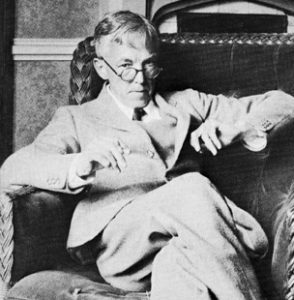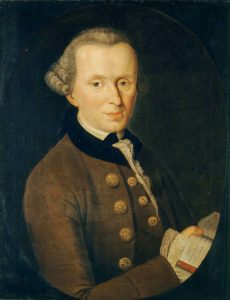We have already dedicated some posts in this Blog to Godfrey Harold Hardy (for its relation with this post I recommend reading Maths is so lovely!).
Hardy’s mathematical experience was, for the most part, aesthetic. And we find continuous references to this in his unavoidable A Mathematician’s Apology: “Beauty is the first touchstone; there is no permanent place in the world for aesthetically unpleasing mathematics”.
 Hardy went so far as to argue that it is beauty alone that gave his mathematics its value, which is as much as to say that it gave meaning to his whole life: “Judged from the practical point of view, the value of my life as a mathematician is nil, and in any case, outside my professional activity, it is insubstantial. So my life, or that of anyone else who has been a mathematician in the sense that I have been one, can be summed up as follows: I have added something to the store of knowledge of mankind and I have helped others to do the same. The products of our work have a value which differs only in degree, and not in specificity, from that of the creations of the great mathematicians, or of any other artists, great or small, who have left behind them some trace in the memory of men”.
Hardy went so far as to argue that it is beauty alone that gave his mathematics its value, which is as much as to say that it gave meaning to his whole life: “Judged from the practical point of view, the value of my life as a mathematician is nil, and in any case, outside my professional activity, it is insubstantial. So my life, or that of anyone else who has been a mathematician in the sense that I have been one, can be summed up as follows: I have added something to the store of knowledge of mankind and I have helped others to do the same. The products of our work have a value which differs only in degree, and not in specificity, from that of the creations of the great mathematicians, or of any other artists, great or small, who have left behind them some trace in the memory of men”.
Hardy’s insistence on the uselessness of “real” mathematics has often been seen as another example of his flamboyant and provocative side. For it is almost provocative to write: “Real mathematics has no effect whatsoever on war. No one has been able to discover any purpose in war or any application to war that can be derived from such subjects as number theory or relativity, and it seems quite unlikely that anyone will be able to do so in the near future”, almost at the same time that the United States was launching the Manhattan Project and building the first atomic bombs. But, ironically enough, the first thing that the Encyclopaedia Britannica reviews in its biography of Hardy is the so-called Hardy-Weinberg law, to which in a later entry the Britannica devotes more space than to Hardy himself, saying: “Hardy placed little value on this law, but its importance is central to the study of many genetic problems, including the distribution of Rh according to blood groups and haemolytic diseases”.
For me, though, Hardy’s impudent praise of the futility of mathematics has another meaning than mere theatricality: Hardy, in his own way, was declaring that in matters of aesthetics he was a follower of the philosopher Immanuel Kant (1724-1804).

Aesthetic satisfactions seem to be of a different nature from other satisfactions more closely linked to the biological fact of our animal constitution, both in their sensory and rational aspects. Thus, the satisfaction that a prehistoric human felt before a decorated clay bowl has little to do with the satisfaction he felt when satisfying his hunger or thirst with the contents of that same bowl; and, for the same reason, the pleasure we get from satisfying our sexual instincts or the pleasure we humans get from being comfortable also seems to differ from the joy we get from listening to Rachmaninov’s second piano concerto. According to Kant, the difference between aesthetic satisfaction and the others derives from the fact that the latter are produced by fulfilling some need and, therefore, all of them have a self-interested motivation; the artistic, on the other hand, has no kind of self-interested utility. Man, Kant said, is the only animal that has the capacity for aesthetic judgement: “The faculty of judging an object or a representation through satisfaction or dissatisfaction, without any interest whatsoever”. It is precisely this “lack of interest” that is the fundamental characteristic of a work of art: art, Kant wrote in the Critique of Judgement, is “finality without purpose”.
So Hardy’s intention in glorifying the uselessness of mathematics was not to be extravagant; following Kant’s aesthetic theory, Hardy was arguing that mathematics is more art than science.
This aesthetic vindication of mathematics, and therefore of its uselessness, is present from beginning to end in A Mathematician’s Apology; it is no accident, then, that Graham Greene said that the book was the best description he knew of what it means to be a creative artist.
Hardy’s passion for mathematics eventually consumed him. At the end of his life, when his mental energy was no longer sufficient to produce mathematics, he became depressed and attempted suicide. It was precisely when he was facing that last stage of his life, well past six decades of existence, that he wrote A Mathematician’s Apology; and that vital bitterness pervades it: “Provided it is read with the attention it deserves,” wrote Charles Snow in the foreword, “A Mathematician’s Apology is a book of devastating sadness. Certainly it is witty and sharp, with a highly intellectual humour; no less certain is it that the crystalline clarity and candour are still present; there is no doubt that it is the testament of a creative artist. Nevertheless, it is no less true that it is a stoic way of launching a passionate lament for the power of creation that has been enjoyed and will never return”.
Hardy said as much in the opening lines of his little book, but in the most brutal way he could: “To decide to write about mathematics is a truly melancholy experience for any professional mathematician. The function of a mathematician is to work at proving new theorems, to enlarge the field of mathematical knowledge, and in no way to talk about what he or other mathematicians have done. Statesmen despise advertising agents, painters despise art critics, and physiologists, physicists or mathematicians very often share such sentiments: there is no deeper, or altogether more justifiable, disdain than that felt by men who create towards men who explain. Exposition, criticism and appreciation is a work reserved for second-rate intelligences”. And he continued: “Thus, if I find myself writing “about” mathematics and not mathematics, I must point out that this is nothing but a confession of weakness, in the face of which I can only expect contempt or commiseration from younger and more vigorous mathematicians. I write about mathematics because, like any other mathematician past the age of sixty, I have lost the freshness of thought, the energy and the patience necessary to deal effectively with my real profession”.
Referencias
Hardy, G. H., A Mathematician’s Apology, Cambridge University Press, Cambridge, 1940. There are Spanish translations: Autojustificación de una matemático, Arial, Barcelona, 1981; Apología de un matemático, Nivola, Madrid, 1999.
Antonio J. Durán, La poesía de los números, RBA, Barcelona, 2010.

Leave a Reply